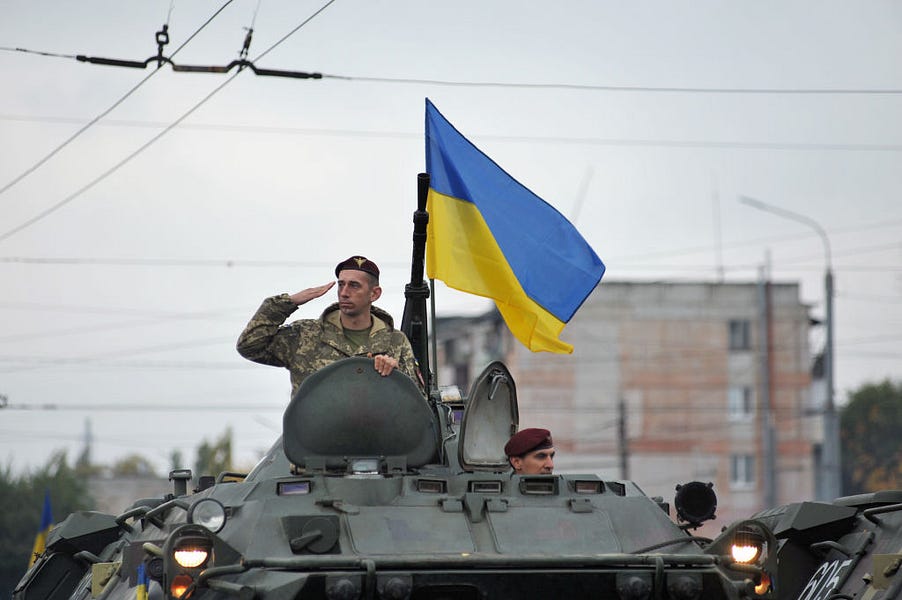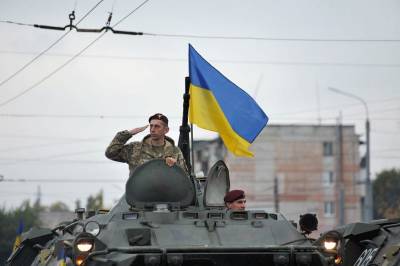Let’s start with two stories.
The first is well known: After Adolf Hitler gained power in 1933, he rearmed Germany, withdrew from the League of Nations, remilitarized the Rhineland (1936), fought a proxy war in Spain, annexed Austria (1938), annexed half of Czechoslovakia (1938), and invaded Poland (1939). At every step, European leaders assumed they could stop further aggression by placating him with concessions, most famously with the Munich Agreement. They were wrong. The lesson every leader has taken for the past 80 years is that appeasement never works and leaders must show strength to face down bullies.
The second story teaches the opposite lesson and is not as well-known. In 1898, the French government sent troops into the interior of Africa to the Upper Nile river basin. The theory: If the French controlled the Nile, they could choke out the British, monopolize North African trade, even control the Suez Canal and shut down Britain’s access to India. As goes the Nile, so goes the world, was the theory. British and French troops met and faced off at a remote African town of Fashoda for nearly two months. London and Paris prepared for war, believing the fate of global empire hung in the balance. Cooler heads realized how ridiculous it was to fight global war for a remote bit of African desert, and war was averted. The less-well-known lesson: Not every crisis is the Archimedean Point upon which world order revolves.
As Russian President Vladimir Putin masses troops on the Ukrainian border, American observers are asking a series of questions. Is this Munich, or is it Fashoda? Is this a moment to project strength and face down an international bully hellbent on territorial conquest? Or is this a peripheral dispute blown out of proportion to which the responsible answer is not a war cry, but a shrug? Should the United States throw down, draw a line in the steppe, and relive its glory days leading the free world against tyranny? Or are we at risk of getting dragged into yet another unnecessary quagmire?
The right answer—as it always is—is that it is a little bit of both and neither one exactly. It is its own thing; the responsible answer is to look at it on the merits, not through the lens of misleading historical analogies. The Ukrainian crisis is a serious moment in international politics. It is not peripheral to American security. How it plays out will matter for the shape of world order in coming years and decades, which means the United States and our European allies would be derelict in their duties and irresponsible to shrug it off or defuse the crisis by giving Putin everything he wants.
At the same time, this is likely not the most important ground on which to confront Putin, nor the most advantageous for us. Deterring Russian aggression is important enough for us to do it right, where and when we are strongest. While the U.S. and Europe should oppose Russia’s moves and try to deter its aggression, this is probably not the single, irrevocable hinge on which the 21st century will turn. World War III can wait.
National sovereignty, territorial integrity, and world order.
Why is Russia’s aggression against Ukraine important to the United States? It is important because the principle of territorial inviolability is a foundational principle of world order. International war was more common before World War II because great powers freely invaded other states to seize land, money, and resources. One of the achievements of the postwar settlement has been to put a stop, more or less, to that kind of war. (Instead, intrastate war—civil war, insurgency, and wars of liberation—became much more common. But that is another story.)
If Russia can invade a neighbor and seize territory with impunity, it sets a precedent that other authoritarian states are likely to follow. International chaos might result . Defending the principles of national sovereignty and territorial integrity is one of the reasons the United States went to war against Iraq after its invasion of Kuwait in 1991. Defending these principles is especially important in Europe, home to a quarter of the world’s wealth, three nuclear powers, and most of the United States’ top trading partners and allies. Contrary to what advocates of restraint argue, what happens in Europe is intrinsically important to the United States and always will be.
Ukraine is important for another reason. It is a testing ground for Russia’s post-Cold War intentions. After the Cold War, Russia sought to repatriate the former Soviet Union’s nuclear weapons that had been stationed in the other Soviet republics. In return for doing so, Ukraine sought guarantees for its territorial integrity. Russia agreed; the result was the 1994 Budapest Memorandum on Security Assurances. Russia promised to be a good neighbor and forswear its Soviet and czarist habits of regional imperialism. In return, Belarus, Kazakhstan, and Ukraine returned their nuclear weapons to Russia. The 1994 agreement was one of the anchors of the broader post-Cold War peace settlement. Its integrity is a test of Russia’s commitment to being a responsible international actor.
Russia has been steadily undoing the post-Cold War world. Putin famously said the collapse of the Soviet Union was a geopolitical disaster. Russia cyberattacked Estonia in 2007, invaded Georgia in 2008, and invaded and annexed Crimea in 2014. Putin withdrew from the Treaty on Conventional Armed Forces in Europe—another post-Cold War cornerstone—in 2015. Now he has amassed an army on Ukraine’s border that has every appearance of preparing to invade. Putin plainly wants to undo the post-Cold War settlement, restore Russian arms and glory, and force the world to recognize Russia’s place as a global superpower on the international stage. Ukraine is not Fashoda, a faraway, manufactured crisis of no real importance; we do not need an implausible hypothetical chain of reasoning to establish its importance. It is obviously, materially, directly important to the world.
The importance of NATO.
Russia would have an easy time of it if it could pick off European states one by one. Fortunately, 70 years ago the U.S. and Europe hit upon an obvious solution of sticking together. Call it the Three Musketeers doctrine: All for one, and one for all. We hang together, or we hang apart. The U.S. and most of Europe signed a mutual defense treaty obligating all signatories to treat an attack on one as an attack on all. Thus was born the North Atlantic Treaty Organization (NATO).
I know this is remedial education for some readers, but most Americans take it for granted or are simply ignorant about it. I have found in conversation with students and audiences that many do not fully appreciate the importance of what NATO stands for. The alliance is the single most important international institution in the world, a major reason the Cold War ended peacefully, a continuing anchor of global peace and stability, a pillar of American security, and an extension of American power. NATO is why, when al-Qae da attacked New York, Polish soldiers fought in Afghanistan alongside us, among dozens of other European allies.
If Russia invades a NATO member —any member, even as small and seemingly insignificant as Latvia—it would be, legally speaking, declaring war on the United States. In that unlikely scenario, the United States should respond in kind to defend the principle of national sovereignty, territorial inviolability, and a Europe whole and free. Then it really would be 1939 and we really would face our Munich moment, except with nuclear weapons. Tom Clancy’s Red Storm Rising would be reshelved from fiction to current events and the film Red Dawn would be re-released as a documentary. We should all invest in nuclear fallout shelters or just go to church for confession because it would be too late to do anything else.
But you can relax, for now, sort of: Ukraine is not a member of NATO, and that makes all the difference. Though it has sought membership for years and even been promised membership at some indefinite point in the future, it is nowhere near formal NATO membership. We have already drawn a line in the sand—and Ukraine is on the other side of it. NATO membership is the line we have publicly committed to defending. Sticking to our line, and neither going beyond it nor shrinking from it is the responsible thing to do . That means a Russian war in Ukraine is very important, but not supremely so. A Russian invasion would be an extremely bad thing that we should try very hard to prevent, but it would be just shy of catastrophically, civilization-destroyingly bad. This is not our Munich moment, yet.
Putin can threaten more than we are willing to risk.
What should we do? The Western allies are preparing to push back, as they should. President Joe Biden has already threatened economic sanctions even more severe than those already in place. Germany is likely to cancel the Nord Stream 2 gas pipeline that Russia has spent years building. The United States will continue and probably ramp up its aid to the Ukrainian military. We probably have other cards to play that are not public, such as cyberattacks on Russian intelligence and military assets. Russia would bring down international condemnation and diplomatic ignominy on its head unlike anything since its invasion of Afghanistan in 1979.
I would go even further, especially in military aid to Ukraine. The single best thing we have done to guarantee Taiwan’s freedom over the past 40 years is to give and sell them our best weapons. We should do the same with Ukraine: Far better to arm them for the fight than for us to have to do the fighting ourselves. And the U.S. military should be prepared to directly assist the Ukrainian military in any way not involving direct combat against Russian troops: U.S. intelligence, surveillance, and reconnaissance, for example, could give the Ukrainians a qualitative leap in their capabilities.
Some observers believe Putin does not intend to invade, instead only to use his saber-rattling as a bargaining chip at the negotiating table. By threatening to invade he gets our attention, then agrees not to invade in return for our promise not to expand NATO or admit Ukraine. I agree—but that does not mean we can ignore the crisis or respond with diplomatic concessions. It means our countermoves are also important bargaining chips. If we let Putin wield his military as a coercive bargaining tactic and give him diplomatic concessions to get him to back down—as Biden seems ready to do with his proposal to pressure Ukraine to grant its eastern provinces autonomy as the price of peace with Russia—without first responding in kind, we have taught him that he can win the game of escalation dominance. He can threaten more than we are willing to risk, and he can always increase his threats knowing we will reach our risk threshold before he reaches his. We’ll never call his final bluff and he wins by default. We effectively would hand Putin a heckler’s veto over European defense policy.
It is important that we stop that trend now, because the real Munich moment may come. Putin’s grand strategic goal, if I had to guess, is to break NATO. He wants NATO to dissolve, or become a toothless, meaningless organization that plays no meaningful role in European politics. When NATO is gone, Putin does not need to conquer Europe; he can play the Europeans off one another, and against us, to create and exploit divisions as it suits him. The transatlantic alliance is why the liberal international order exists. Undermining the alliance is what would enable Russia—and China—to step into the vacuum and advance a very different vision of world order.
The crises in Ukraine and Georgia may be dress rehearsals for the next crisis, perhaps in the Baltics. When you see headlines about suspiciously well-armed Russian-speaking insurgents fomenting unrest in Latvia, or in another NATO member country, and when you hear Russia making noise about protecting ethnic minority Russians in its near-abroad, then take a moment to understand what is happening. In that eventuality, we really are facing our Munich moment and we really do have to muster the courage to face down the bully and protect the free world. We aren’t there yet. Best to respond forcefully today, but keep our strongest response in reserve for when it is most needed.







Please note that we at The Dispatch hold ourselves, our work, and our commenters to a higher standard than other places on the internet. We welcome comments that foster genuine debate or discussion—including comments critical of us or our work—but responses that include ad hominem attacks on fellow Dispatch members or are intended to stoke fear and anger may be moderated.
With your membership, you only have the ability to comment on The Morning Dispatch articles. Consider upgrading to join the conversation everywhere.